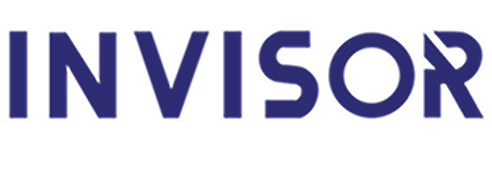EA USA vs CPA USA: Which Certification is Right for Your Career Path?
Choosing between the Enrolled Agent (EA) and Certified Public Accountant (CPA) certifications in the USA is a pivotal decision for anyone pursuing a career in accounting or tax. Although both credentials are highly respected and offer distinct advantages, their career paths, scope, recognition, and exam requirements are quite different. Let’s break down the differences to help you decide which route best aligns with your aspirations and strengths.
What Is an EA? What Is a CPA?
Enrolled Agent (EA) is a tax professional licensed by the Internal Revenue Service (IRS) to represent taxpayers before the IRS. EAs are widely regarded as tax specialists, handling all sorts of tax matters, including audits, collections, tax advice, and tax return preparation for both individuals and businesses. The EA credential is federally recognized, allowing an EA to practice across all 50 states without needing state-specific licensing.
Certified Public Accountant (CPA) is a state-licensed accounting expert with a much broader role. CPAs work in diverse areas including taxation, auditing, consulting, corporate finance, business valuation, and financial planning. Unlike EAs, CPAs are authorized not only to represent clients before the IRS but also to certify financial statements, conduct audits, and offer a wider range of business and accounting services. Each CPA license is state-specific, with mobility in some states through reciprocity agreements.
Exam and Licensing Requirements
EA Path:
- No formal education or prior experience required.
- Must pass a three-part Special Enrollment Exam (SEE) focused solely on taxation.
- Licensing and regulation handled by the IRS.
- Continuing education: 72 hours every three years.
CPA Path:
- Bachelor’s degree (150 college credit hours, typically including a focus in accounting).
- Must pass a rigorous four-part Uniform CPA Exam: Auditing, Financial Reporting, Regulation, and Business Environment.
- Work experience (usually 1–2 years) required, varying by state.
- Continuing education: typically 40 hours per year, varies by state.
- Licensing and regulation managed by individual state boards.
Career Focus and Opportunities
EA Career Focus:
- Exclusively specializes in tax-preparation, planning, representation, collections, and appeals.
- Common employers include tax consulting firms, tax advisory services, law firms, and government agencies.
- EAs can serve clients nationwide with no state restrictions.
- Typical salary range: $68,000–$125,000, depending on experience and location.
CPA Career Focus:
- Broad accounting practice: audit, tax, consulting, risk assessment, corporate finance, forensic accounting, and more.
- Employed by public accounting firms (including the Big 4), large corporations, financial institutions, government, and nonprofits.
- Can issue audited financial statements, a vital function for public companies.
- Higher salary potential overall: $60,874–$150,612+, reflecting expertise and broader scope.
Cost, Time, and Accessibility
EA:
- Lower overall cost—exam and application fees average around $684.
- Can be completed in about 3–6 months.
- Accessible to candidates from diverse backgrounds, with no degree required.
CPA:
- Higher cost—total fees (exams, applications, etc.) may average $3,000–$5,000+.
- Completion typically takes 18–24 months, considering education and experience prerequisites.
- More challenging eligibility and state-specific rules.
Which Certification Should You Choose?
Choose EA If:
- You want to build deep expertise in taxation and represent clients before the IRS.
- Quick entry and flexibility to practice across the USA appeal to you.
- You do not hold a US bachelor’s degree or wish to avoid lengthy, costly exam preparations.
- You aim to work in tax-specific roles or directly support US tax operations from overseas.
Choose CPA If:
- You envision a broad-based accounting career, perhaps progressing into leadership, audits, or executive roles.
- You want to prepare, audit, and certify financial statements, or work for a public company.
- You already have (or plan to get) a bachelor’s degree in accounting or a related field.
- Higher long-term earning potential and broad career options are important for your goals.
Final Thoughts
Both the EA and CPA certifications are valued assets — your choice depends on your career vision. If fast-tracking into US tax is the goal, the EA offers an efficient and specialized route. If you want deep accounting knowledge, leadership roles, or versatility across industries, CPA is the gold standard. Evaluate your interests, education, and where you see your career in five or ten years to make the best choice for your path.


